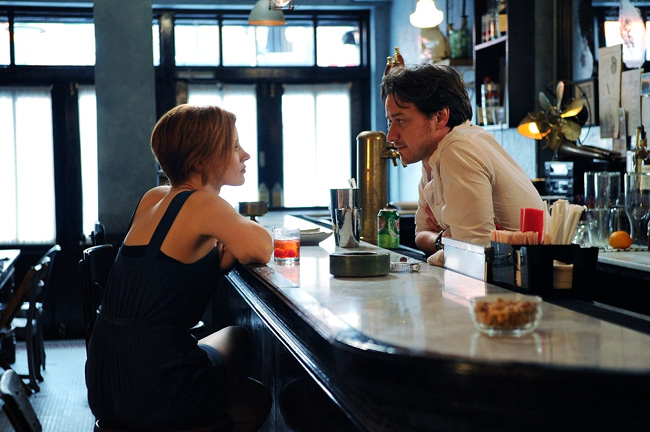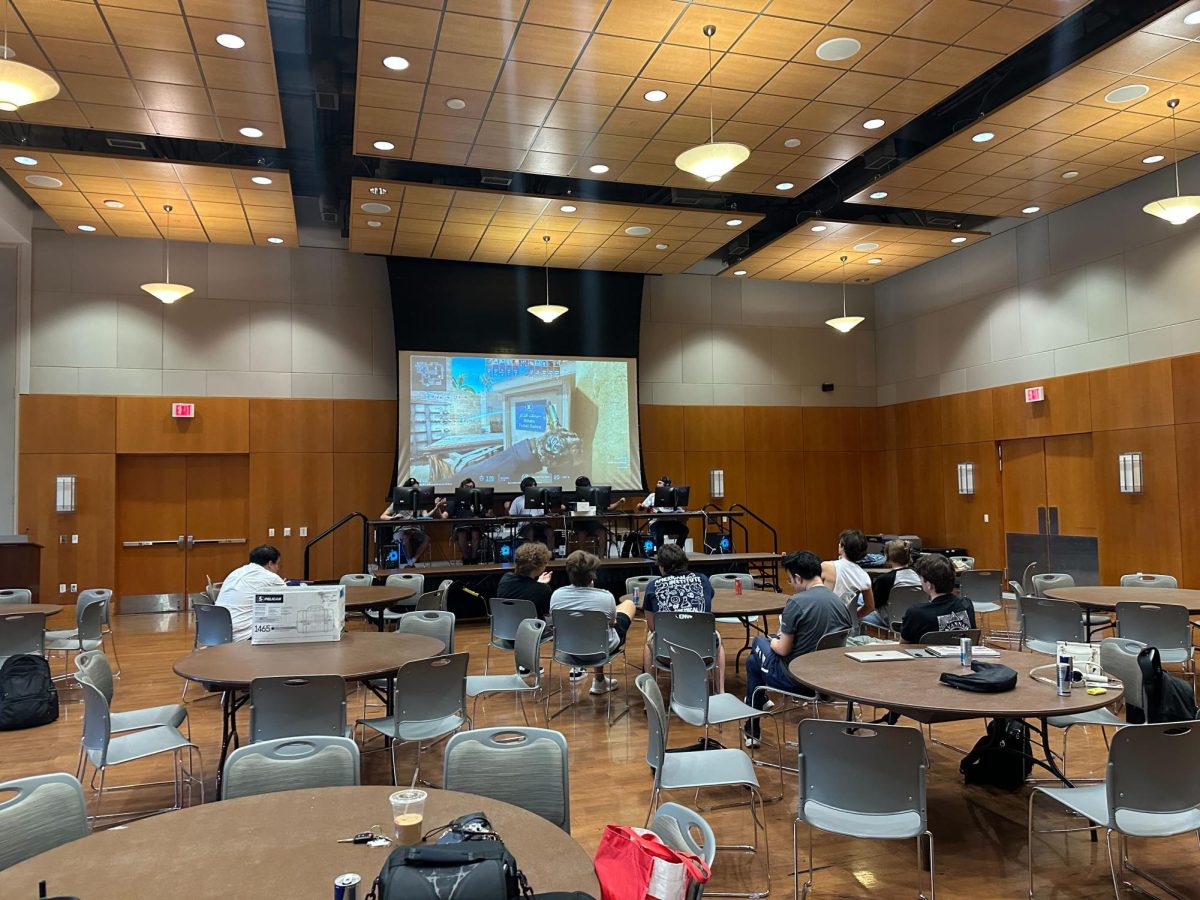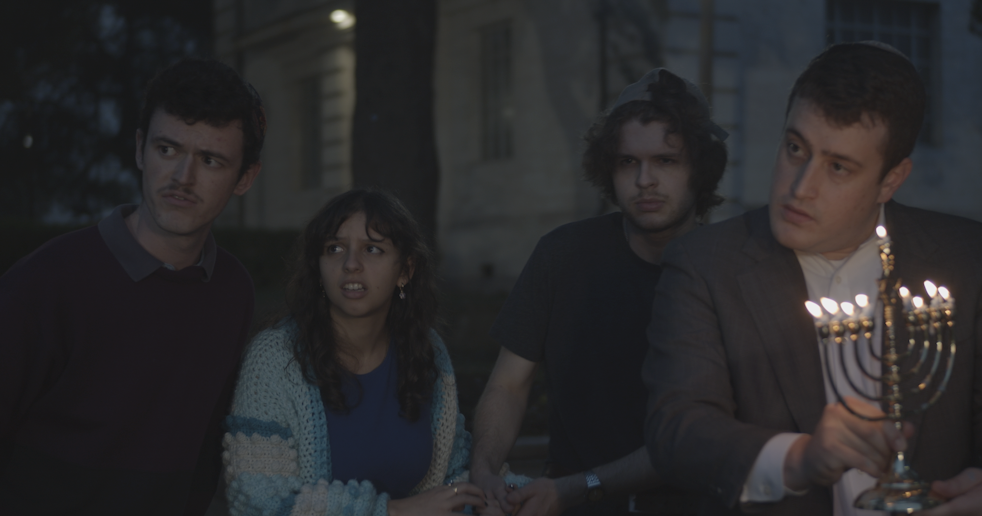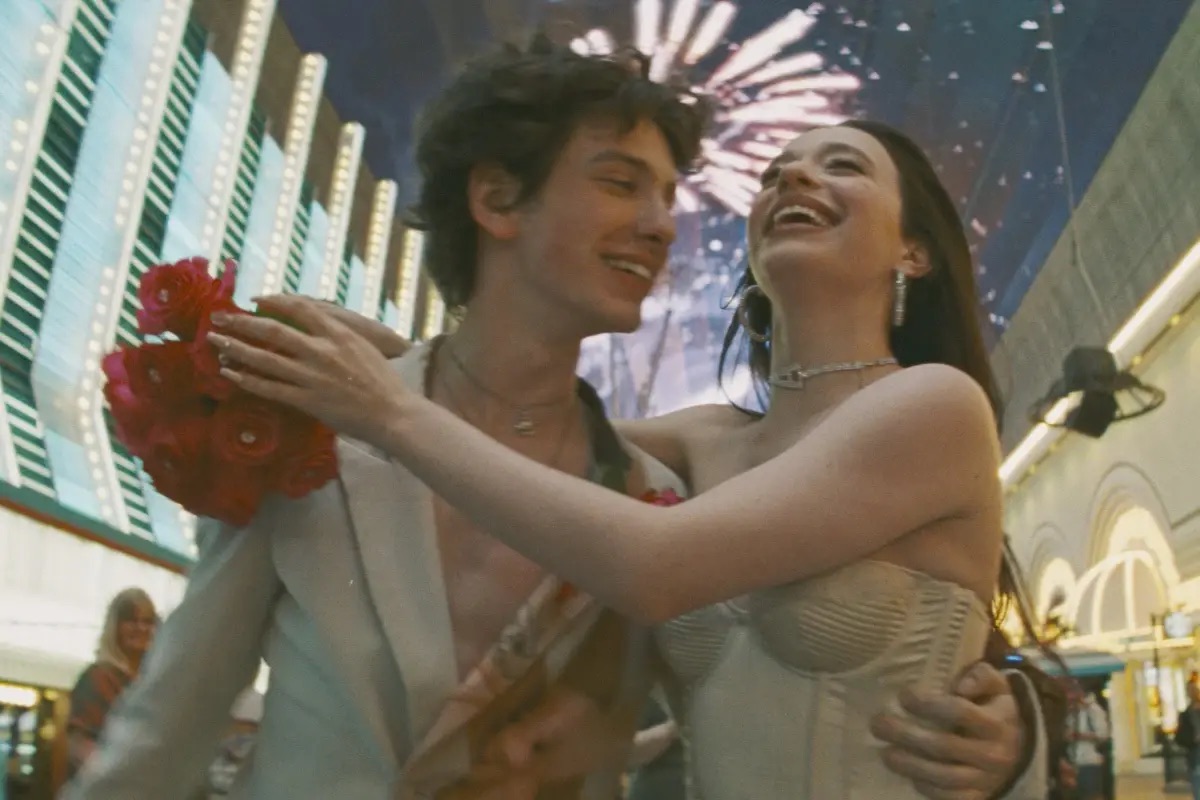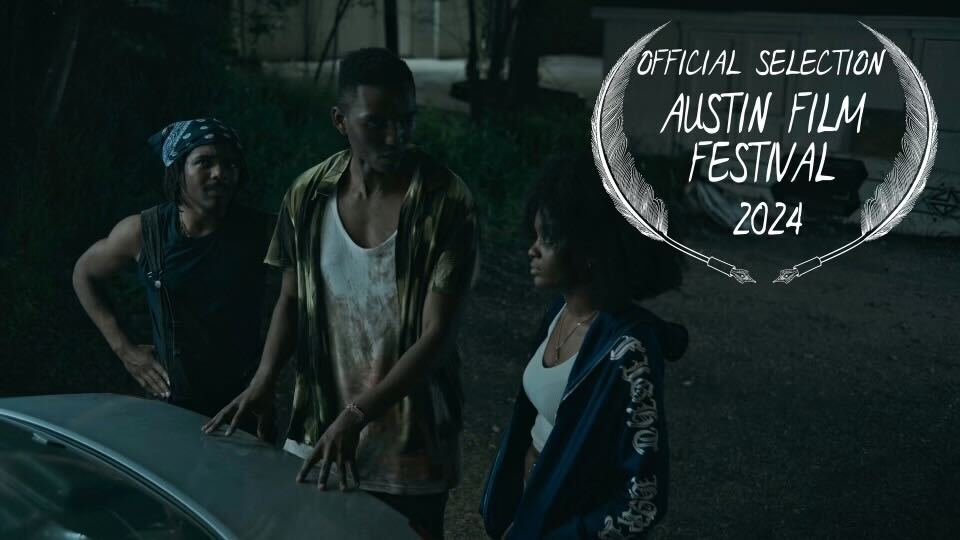Ned Benson’s “The Disappearance of Eleanor Rigby,” a film that depicts the complex workings of a failing marriage, comes off as oddly flat. There are characters dealing with unspeakable tragedy, yet they are painted so thinly that it is difficult to sympathize with them. An interesting, heartbreaking story is present, but the plot moves so slowly that it’s hard to feel involved. Indeed, there are only a few moments when the film really feels alive at all.
After a failed suicide attempt, Eleanor Rigby (Jessica Chastain) returns to live with her family in suburban New York, leaving behind her restaurant-owner husband Conor (James McAvoy). Both are recovering from the tragic death of their infant son, which scarred their marriage. As they begin to drift apart, the couple attempts to rebuild their family and come to grips with their new emotional reality.
An interesting facet of “The Disappearance of Eleanor Rigby” is that it is a combination of two separate films, “Him” and “Her,” both written and directed by Benson. This version collides the plots into a coherent love story. The effort is decent, but one can still see the scissor marks present in the final cut. For a two-hour film, there seems to be an abundance of filler. However, Benson does a good job balancing the arcs of both leads — both sides of the story manage to feel complete, and equal time is given to examine the plotlines of each part of the duo.
Much needed support for the film comes from the convincing performances by Chastain and McAvoy. While their characters are admittedly dull and not completely fleshed out, the duo are able to bring out the emotional devastation present in themselves. Chastain brings out the frightened survivor trying to simply start anew, while McAvoy uses his charm to present a man who desperately wants things to go back to normal. Despite their great performances, the minor characters seem to possess more personality than the leads. Viola Davis’ performance as a professor brings dark humor to the role, while Bill Hader’s role as a womanizing chef provides brilliant comic relief.
The crippling aspect of the film is the script, which scrambles to find a meaningful identity. Benson peppers in several quirky moments in a vain attempt to give the movie a unique voice. Another aggravating issue involves how much the “dead child” subplot is underplayed. While the climax expertly brings the issue to a head and subsequently reveals the couples’ true emotions over the tragedy, it never feels as though Eleanor and Conor’s son was an actual character. His name is never revealed, nor is the cause of his death. It feels as though the purpose of withholding such details was to create a symbol of hope out of his demise, but, instead, his death becomes a mere plot device.
“The Disappearance of Eleanor Rigby” starts out as a well meaning, interesting film that has the makings of a dramatic romance, but it loses its way in the journey. The actors’ performances are admirable, but the lifeless characters they play don’t do justice to their abilities. While the film deserves applause for taking the plots of two separate movies and mixing them into a coherent storyline, it suffers from using gimmicks to enhance its identity. Simply, the movie wastes away its opportunity by making fatal narrative choices.

